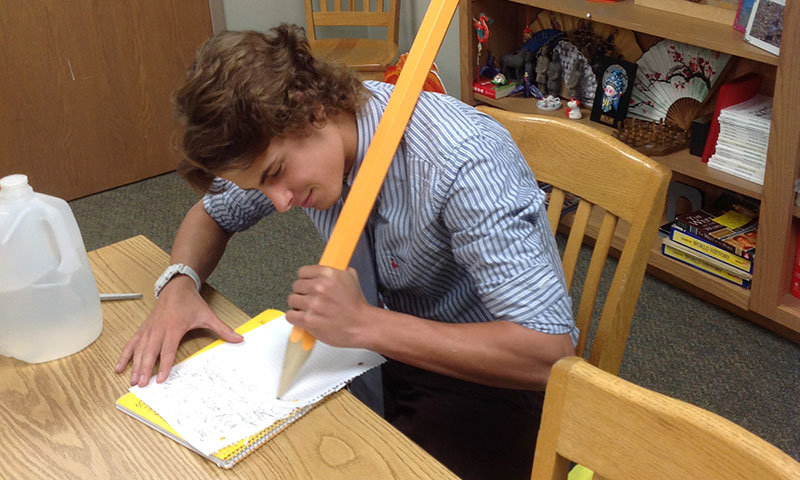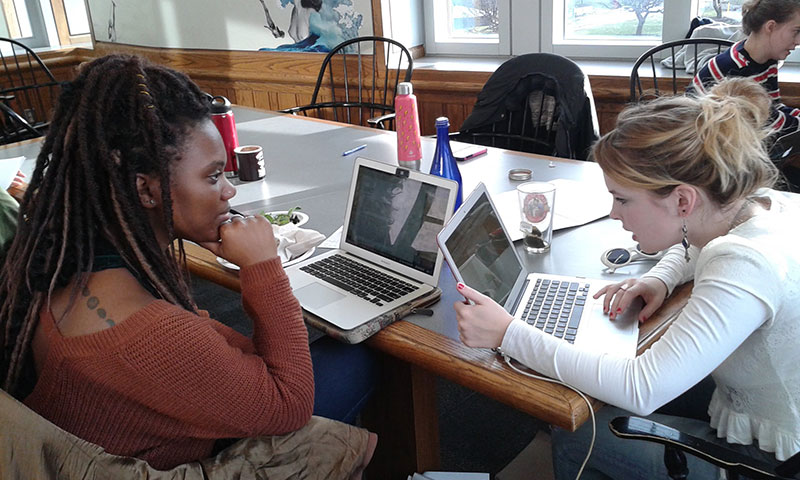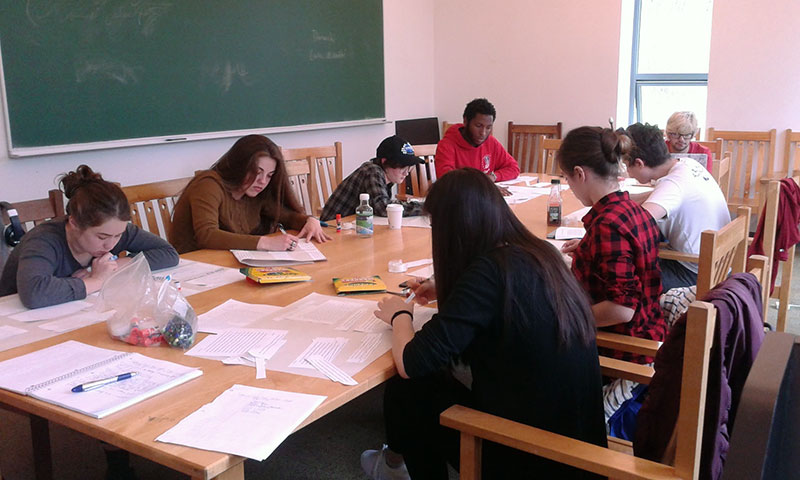Whether it be one-on-one tutoring, courses and workshops, learning strategies, or drop-in hours, we encourage all students and faculty to contact us to see how we can help.
Services for Students
Contact:
Zoe Stone at [email protected] or Liv Zinn at [email protected] with questions about scheduling study sessions, tutoring or workshops.
-
The Bard Learning Commons offer subject-based tutoring, senior project tutoring, and in-person or online writing tutoring. Most peer tutoring offered by the Learning Commons comes in the form of daily drop-in hours. The Learning Commons employs personal tutors in writing, math, physics, chemistry, economics, and biology.
Find a Tutor -
We regularly offer writing and academic skills workshops and drop-in hours. We are here to offer support in revision strategies, time manegment, public speaking, and more. We are available for support not only for the general student population, but also for students writing moderation papers, senior projects, and personal statements.
Explore Workshops -
 Shut Up and Write!Mondays 12:30–3:30 pm
Shut Up and Write!Mondays 12:30–3:30 pm
These sessions provide a quiet, productive space for you to work on your writing assignments or Senior Projects. We can offer informal writing prompts to help you get started, overcome inertia, or to draft plans for where to go next. We offer a space to write, rather than a workshop: the goal is to spend focused time on your writing. -
 Other Services
Other Services- Take advantage of our drop-in tutoring hours in a variety of subjects.
- Get math support to improve your algebra or precalculus skills.
- Bring your paper to a writing consultant, whether you're working on a FYSEM essay or senior project.
- Take a course.
- Gain confidence speaking and reading English.
- Ask for disability support.
Resources for Students
Citation and Documentation
-
NoodleTools not only helps you generate bibliographies in MLA, APA, or Chicago style, it can also help you outline and draft your research paper. NoodleTools is accessible from the Stevenson Library home page under Databases. If you have questions about how to set up an account or how to use NoodleTools, please ask a reference librarian for help.
-
Research and Documentation Online
Plagiarism
To plagiarize is to “steal and pass off as one’s own the ideas, words, or writings of another.” This Webster’s Dictionary definition is quite straightforward, but it is possible for students to plagiarize inadvertently if they do not carefully distinguish between their own ideas or paper topics and those of others. The Bard faculty regards acts of plagiarism very seriously.
Listed below are guidelines to help students avoid committing plagiarism.
- All work submitted must be the author’s. Authors should be able to trace all of their sources and defend the originality of the final argument presented in the work. When taking notes, students should record full bibliographical material pertaining to the source and should record the page reference for all notes, not just quotations.
- All phrases, sentences, and excerpts that are not the author’s must be identified with quotation marks or indentation.
- Footnotes, endnotes, and parenthetical documentation (called innoting) must identify the source from which the phrases, sentences, and excerpts have been taken.
- All ideas and data that are not the author’s must also be attributed to a particular source, either in a footnote, endnote, or innote.
- Bibliographies must list all sources used in a paper. Students who have doubts as to whether they are providing adequate documentation of their sources should seek assistance from their professor or from Academic Resources before preparing a final draft of the assignment.
- Failure in the course in which plagiarism occurs.
- Denial of the degree in cases involving a Senior Project.
- Expulsion from the College for a second offense.
- Loss of all credit for that semester and suspension for the remainder of that semester.
- Expulsion for a second offense.
Students may not submit the same work, in whole or in part, for more than one course without first consulting with and receiving consent from all professors involved.
(From the Bard Student Handbook)
Study Skills
-
Purdue University "Time Management Tips for Busy College Students"Purdue University "Time Management Tips for Busy College Students"
Writing
The following links have thorough and helpful information about virtually every part of the academic writing process:



